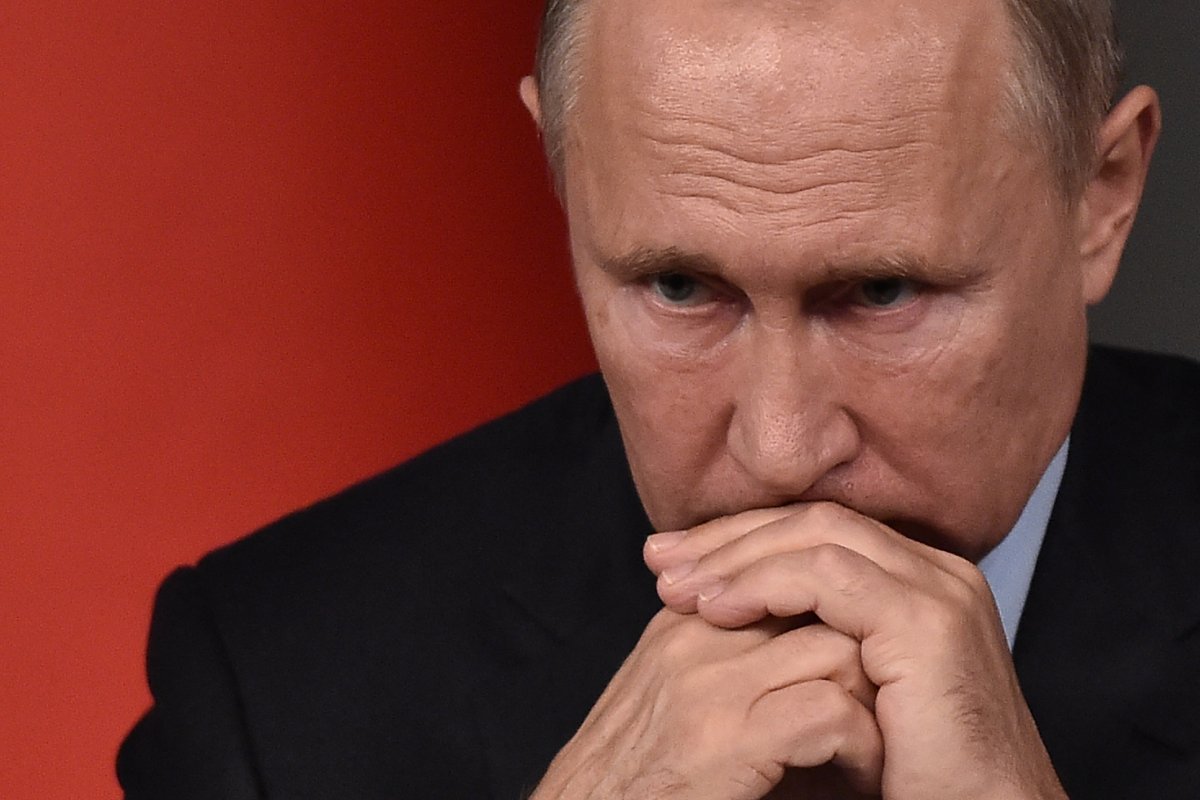A prominent Russian state media outlet went off message this week with a report attacking Russian President Vladimir Putin's war in what appears to be the first time since the conflict began last February.
A report published by Russia's state-run news agency RIA Novosti on Tuesday titled "We didn't expect this," features interviews with frustrated soldiers who were injured while fighting in the war in Ukraine and didn't receive the compensation promised by the Russian president.
Although guests on Russian state TV have recently voiced their frustration with the ongoing war, state-run media agencies such as RIA Novosti have stuck to the Kremlin line. This is because Russia's parliament passed legislation in March 2022 imposing jail terms of up to 15 years for intentionally spreading "fake" news about Russia's army. The Kremlin has used the law to crack down on those who veer away from Putin's narrative of the war.
Russian authorities have prohibited media from calling Putin's invasion of Ukraine a "war"—state-run media outlets adopt the term "special military operation," which RIA Novosti has done in its report.

Putin, a week into the war, pledged that injured men could claim compensation of three million rubles ($50,000), saying in March 2022 that it's "our duty to support the families of our fallen and injured war comrades."
But in April, Russia's defense ministry published a statement on its website saying that to be eligible for compensation, injuries sustained needed to be among those on an official list—a move that came as reports emerged that Russia was sustaining heavy casualties in battle.
Sergey Abramov, a resident of Krasnoyarsk who was sent to fight in Ukraine's contested Donetsk region toward the end of 2022 after three months of training, told RIA Novosti that he was shell-shocked, hospitalized, and subsequently diagnosed with mine blast injuries and acubarotrauma (damage to the membranes).
Despite his injuries, Abramov said he is being refused compensation, as another hospital wrote a letter saying that he had suffered an "acute reaction to stress." He has appealed to a military prosecutor's office.
RIA Novosti noted that human rights activists have sounded the alarm over Putin's presidential decree differing from the official list published by the defense ministry weeks later.
"Doctors usually list the symptoms, but not their cause. And military personnel do not draw up paperwork for payment," the report said.
The news agency cited a human rights activist as saying that doctors write "Acute reaction to stress;" "Asthenic condition" (increased fatigue); "Astheno-neurotic syndrome, situationally determined" (emotional fatigue and irritability).
"This is not considered either an injury, or an injury, or a concussion," the activist said.
Another Russian soldier from Dagestan, named Alexander, was shell-shocked last summer in Ukraine's Zaporizhzhia region—one of the four regions that Putin proclaimed to have annexed in the fall of 2022.
Alexander said he hit his head and was initially diagnosed with "a closed craniocerebral injury."
But later, the military prosecutor's office in Russia concluded that "this was not an injury, but a disease" and that he shouldn't expect payment from the government.
RIA Novosti said many soldiers have complained about corruption to a human rights activist in Russia.
"We've been taken advantage of," one soldier was quoted as saying.
The news agency said Russian soldiers want justice and want authorities to deal with this problem "before it becomes widespread."
Newsweek reached out to Russia's defense ministry for comment via email.
Do you have a tip on a world news story that Newsweek should be covering? Do you have a question about the Russia-Ukraine war? Let us know via worldnews@newsweek.com.
Uncommon Knowledge
Newsweek is committed to challenging conventional wisdom and finding connections in the search for common ground.
Newsweek is committed to challenging conventional wisdom and finding connections in the search for common ground.
About the writer
Isabel van Brugen is a Newsweek Reporter based in Kuala Lumpur. Her focus is reporting on the Russia-Ukraine war. Isabel ... Read more
To read how Newsweek uses AI as a newsroom tool, Click here.








